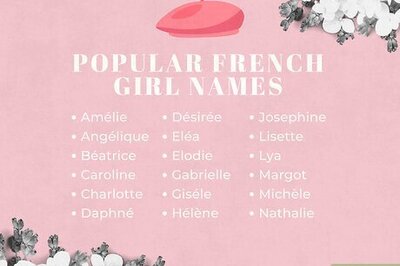
views
February 6, 2019 marks what would been the 74th birthday of Bob Marley. Nearly 38 years after his cancer-related death in 1981, the reggae pioneer's songs of love, dissatisfaction, peace, and protest are still as powerful and timely as they were in his heyday.
With the countless uprisings, confrontations, and soul revolutions in the decades since his passing, it's incredible how many of his politically charged tracks continue to be relevant. Here are his 10 greatest songs of protest, social justice, and fighting the power.
Simmer Down (1962)
Marley's first hit came as part of the ska vocal group the Wailers, alongside Bunny Wailer and Peter Tosh. The band took aim at the rude boys of Kingston, telling them to cut the crap when it came to prevalent violent crime in the Jamaican capital.
Concrete Jungle (1973)
Long before Alicia Keys used the term to describe New York, it was the title of Marley’s song about life in a Jamaican ghetto with little to no hope for escape, "No chains around my feet/But I'm not free/I know I am bounded in captivity."
Get Up, Stand Up (1973)
Marley criticised the passivity in religious circles in which he felt too many Jamaicans (and others of African descent) were simply content with being mistreated and abused on Earth, because they believed they would inherit a beautiful life after death.
I Shot the Sheriff (1973)
After witnessing police oppression in Jamaica, Marley fantasized about the justifiable killing of a corrupt cop on this single. People still identify with the sentiment, especially in the context of the #BlackLivesMatter movement.
Burnin' and Lootin (1973)
This song reflected the frustration and anger of the people who felt suffocated by the curfews and corrupt police force in Kingston. Marley looks at the different angles of a citizen uprising, simultaneously reveling in the destruction, understanding the motivations and expressing disgust at the violence.
Them Belly Full (But We Hungry) (1974)
Them Belly Full (But We Hungry) is a warning against allowing a nation's poor to go hungry, with the prophetic warning "a hungry mob is an angry mob".
No Woman, No Cry (1974)
One of the best known songs of Marley, No Woman, No Cry is a nostalgic remembrance of growing up in the impoverished streets of Trenchtown, the ghetto of Kingston, and the happiness brought by the company of friends.
Revolution (1974)
This song is a call from Marley to the people to tell them to be aware of politicians bearing false gifts. He knows how the system will “grant" favours to the most vulnerable in an attempt to gain their support, and will then turn and use their dominant position to unscrupulously control and exploit them.
War (1976)
This song takes its lyrics from a speech Ethiopian Emperor Haile Selassie gave before the United Nations. While Selassie's words and Marley's interpretation are focused on Africans, the message is applicable to any oppressed country, race, ethnicity, sexuality, etc.
Redemption Song (1980)
Written after his cancer diagnosis, Marley reflects upon his impending death, spirituality, and slavery, putting his legacy as an artist and message as an activist into just 108 words, telling all the believers to learn from their pasts, know their presents, and fight for their futures.


















Comments
0 comment